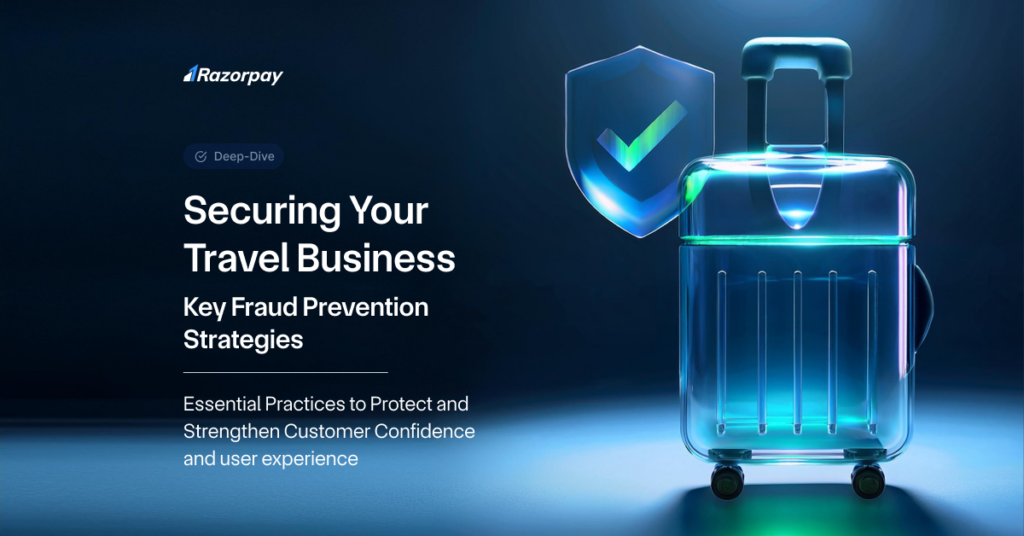No industry is immune to the rising threats of fraud, which can severely damage both your reputation and financial standing. At Razorpay, we recognise these challenges and are dedicated to helping you protect your business. By implementing a few key measures, you can significantly reduce the risk of fraudulent activities and ensure a secure, trustworthy environment for your customers.
10 Best Practices to Safeguard to Follow
1. Comprehensive Identity Verification
Start by verifying the identity of your customers through robust processes, including phone number verification, email verification, and KYC (Know Your Customer) checks. This should be done both at the time of booking and during check-in to ensure the authenticity of each transaction.
2. Confirmations on Check-in & Check-out
Send confirmation emails and SMS messages during check-in and check-out. This step helps verify customer contact information, ensuring that your records are accurate and that the right person is using the service.
3. Transaction Monitoring
Closely examine every transaction for potential fraud indicators. This includes checking the type of credit card used, the geolocation of the transaction, and the velocity (frequency) of transactions. Monitoring these aspects can help you spot suspicious activities early.
4. Vendor and Partner Screening and Reviews
Conduct thorough background checks and vetting processes for all vendors and partners. Regularly review and audit their performance to ensure compliance with contractual agreements and maintain high standards across your network.
5. Transparent Pricing
Clearly list all prices, including applicable taxes, convenience fees, and surcharges. Avoid hidden fees by providing a detailed breakdown of all costs upfront, which helps in building trust with your customers.
6. Detailed Receipts and Confirmations on Booking
Provide detailed receipts and booking confirmations that include a clear breakdown of costs and services. Ensure that these are shared via email and SMS, giving customers a complete record of their transactions.
7. Clarity and Transparency in Itinerary
A well-detailed itinerary should provide clear information about the travel plans, including dates, times, locations, and activities. This transparency reduces the likelihood of chargebacks and enhances customer satisfaction.
8. Bankruptcy and Embargo
In the unfortunate event of bankruptcy, strikes, or regulatory embargoes that lead to the cancellation of travel plans, merchants are responsible for informing customers and providing refunds or alternative arrangements promptly.
9. Unforeseen and Uncontrollable Events
Clearly communicate policies related to Force Majeure events, such as natural disasters or pandemics. Ensure that your customers understand the refund policies and alternative arrangements available in such circumstances.
10. Customer Support, Refund & Cancellation Policies
Offer robust customer support through multiple channels. Clearly outline your refund and cancellation policies to manage customer expectations and enhance their trust in your business.
To sum up…
By adhering to these best practices, you not only protect your travel business from fraud but also strengthen the trust and confidence of your customers. A proactive approach to security is essential in today’s competitive marketplace, and we at Razorpay are here to support you every step of the way. If you have any questions or need assistance in implementing these strategies, don’t hesitate to reach out to us.


